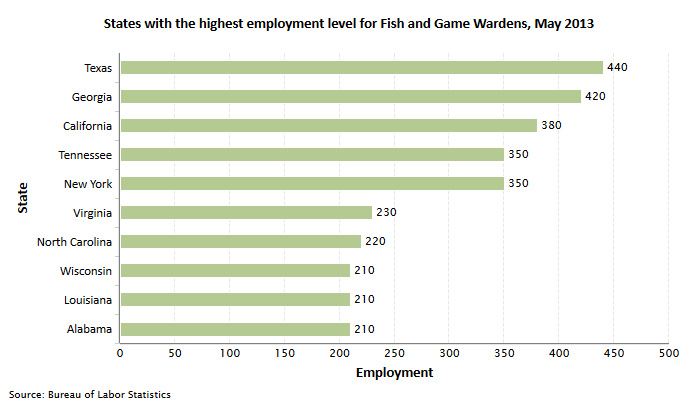Fish & Game Warden
Working as a fish and game warden provides people interested in law enforcement a challenging and diverse career with numerous opportunities for career growth. Fish and game wardens typically have jurisdiction within the state where they work. Enforcing fish and game laws is their main responsibility, but they are authorized to enforce state and federal laws. Wardens are given assignments in populated and rural areas within their state. Most fish and game wardens are assigned to work in specific regions.Fish and game wardens are typically classified as peace officers within their defined state jurisdictions. They patrol wilderness regions on land and water to enforce fish and game laws, including boating, fishing, and poaching laws. When poaching laws are violated, fish and game wardens are responsible for retrieving the carcass and weapon used to commit the crime. They must also respond to wild animal attacks, especially when animals are threating human populations, teach the public about fish and game laws and wildlife stewardship, and respond to emergencies. Fish and game wardens are required to carry firearms and wear uniforms.
- Hunter Education
- Academy Staff
- Field Training Officer
- Patrol Boat Boarding Officer
- Warden Pilot
- Commercial Fishing
- Streambed Alterations
- Undercover Operations
- Delta Bay Enhanced Enforcement Team
- Oil and Toxic Chemical Response and Prevention
- Weaponless Defense Teacher
- Firearms Instructor
- Tactical Baton Teacher
- Drug Sniffing Dog Handler
- Covering vast geographic regions
- Growing human populations in wilderness areas
- Wildlife and habitat diversity (differs by state)
- In coastal regions, wardens must patrol multiple lakes and coastlines
- Hundreds of different wildlife and fish species
- Hundreds of varying plant species
- Endangered and threatened animals
- Issuing millions of fishing and hunting permits annually

About
Privacy Policy
Contact Us
Submit a Resource
